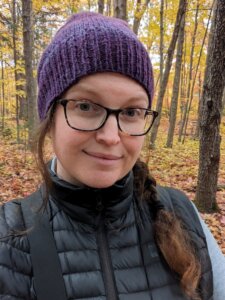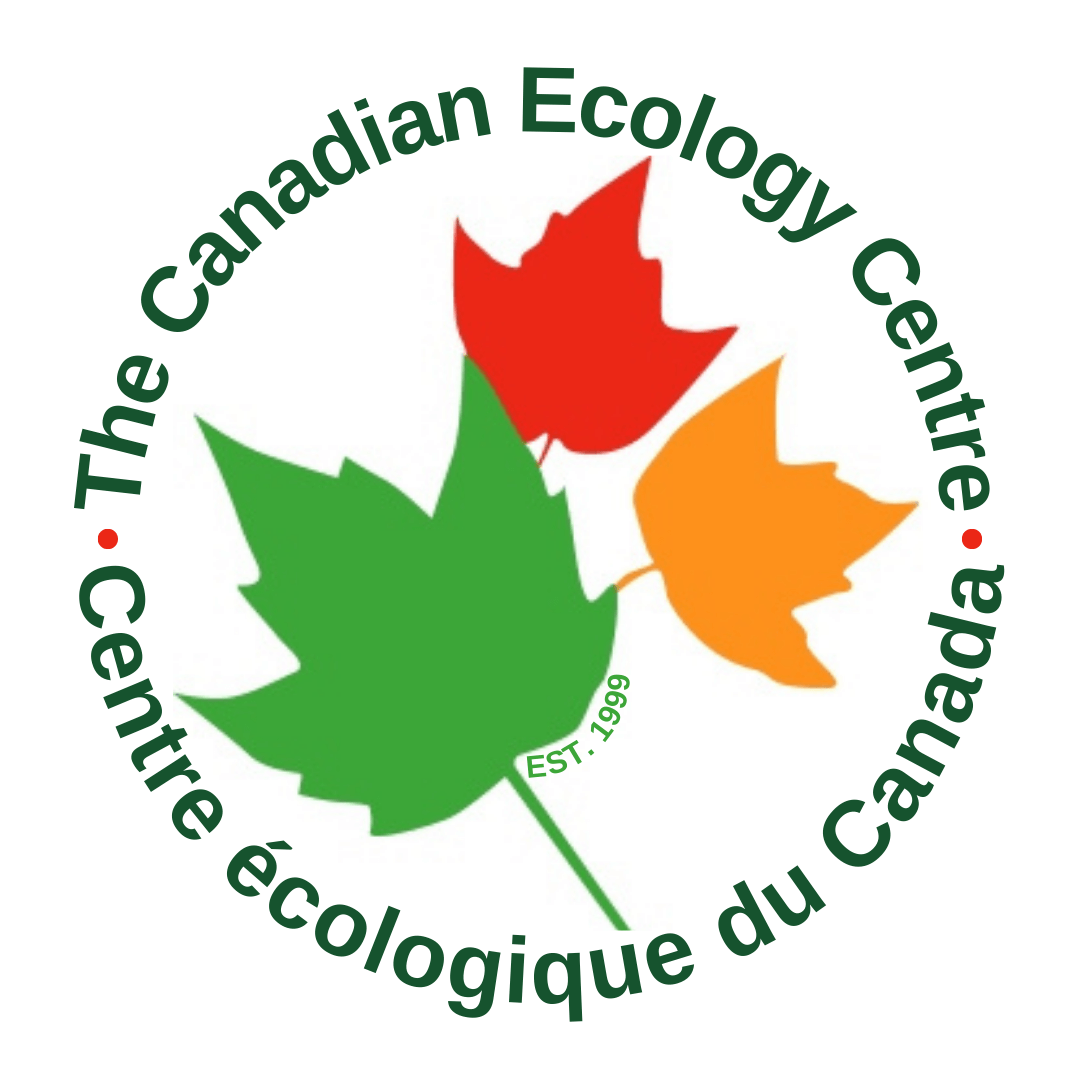Canadian Ecology Centre
Forest & Nature School
There are no scheduled programs for Fall 2024.
Designed to foster imagination, investigation, and exploration in nature. Students will spend time exploring the surrounding forest through play. The hands-on and experiential activities lead by our certified teaching staff will focus on grade appropriate curriculum in science, math and literacy. Ideal for children who are homeschooled or to enrich formal schooling.
Students receive an overview of their demonstrated skills/development at the end of each session to share with their classroom teachers.
Let’s engage with nature through story and exploration! Children will join us Tuesday mornings where they will learn and play in the forest with our certified CEC education staff.
Canadian Ecology Centre
Forest & Nature School
There are no scheduled programs for Fall 2024.
FOREST DAY SCHOOL
Designed to foster imagination, investigation, and exploration in nature. Students will spend time exploring the surrounding forest through play. The hands-on and experiential activities lead by our certified teaching staff will focus on grade appropriate curriculum in science, math and literacy. Ideal for children who are homeschooled or to enrich formal schooling.
Students receive an overview of their demonstrated skills/development at the end of each session to share with their classroom teachers.
PRESCHOOL
Let’s engage with nature through story and exploration! Children will join us Tuesday mornings where they will learn and play in the forest with our certified CEC education staff.
MEET OUR FNS FACILITATORS
MEET OUR FNS FACILITATORS
Coral Bissett, OCT
 Coral is a mom of two, a Forest & Nature School Practitioner, a teacher registered with the Ontario College of Teachers and is passionate about facilitating play and learning in nature! Growing up in Southern Ontario, her family would head North every summer to camp in some of Ontario’s many provincial parks. After completing her degree in Environmental Studies and Geography at Queen’s University, she traveled to North Bay for her Bachelor of Education at Nipissing University where she fell in love with the city and surrounding nature spaces. She joined the Canadian Ecology Centre’s education team after graduation where she has worked for the last 16 years facilitating outdoor programs for groups from preschool to adult in both French and English, coordinating the Centre’s programs and events, and working in schools mentoring teachers helping them to take their learning into their school’s surrounding nature spaces.
Coral is a mom of two, a Forest & Nature School Practitioner, a teacher registered with the Ontario College of Teachers and is passionate about facilitating play and learning in nature! Growing up in Southern Ontario, her family would head North every summer to camp in some of Ontario’s many provincial parks. After completing her degree in Environmental Studies and Geography at Queen’s University, she traveled to North Bay for her Bachelor of Education at Nipissing University where she fell in love with the city and surrounding nature spaces. She joined the Canadian Ecology Centre’s education team after graduation where she has worked for the last 16 years facilitating outdoor programs for groups from preschool to adult in both French and English, coordinating the Centre’s programs and events, and working in schools mentoring teachers helping them to take their learning into their school’s surrounding nature spaces.
Coral’s interest in Forest & Nature Schools started during the pandemic while running the CEC’s Summer Day Camp programs. Noticing that the campers were more engaged with their environment and surroundings with less organized activities and games, she slowly started to change the format of the camp and explore how to redesign these day camps to increase nature connection and awareness in campers, as well as help create opportunities for social emotional growth. This journey led her to the Forest & Nature School Practitioners course, which she just recently completed.
Coral lives in North Bay with her husband and two adventurous daughters where they spend their summers camping and exploring their local wild spaces and their winters building toboggan runs in the backyard! She finds immense joy in sharing her passion for nature with her family, friends, and surrounding community.
FAQ'S
FAQ'S
Where is Forest & Nature School located?
Laurentian Escarpment Conservation Area & NBMCA Natural Classroom at 15 Janey Ave. North Bay
What is Forest & Nature School?
Forest and Nature School (FNS) is an educational approach that has existed worldwide since the late 1950s. FNS goes by many different names (i.e., Nature Kindergarten, Outdoor School, Waldkindergarten, etc.) and can take many different forms.
FNS programs can be offered just a half a day per week or full-time and can take place in many different climates and settings – urban or near-urban parks, natural spaces adjacent to or on schoolgrounds, natural playgrounds or outdoor classrooms, forests, meadows, or beaches – and with varying age groups.
The activities that happen in FNS also vary depending on the season, climate, landscape, animals that have visited the night before, trees that have blown down in the wind, the kinds of provocations elicited by the educator, various tools and loose parts for building and creating, the children who are in attendance, how long the group has been formed, and, most importantly, what interests the child. FNS is frequently described as a ‘magical’ thing to witness, as it is often a microcosm of collaboration, communication, trust building, and a working model of consensus building. Despite all this variation, all FNS programs adhere to the following two principles, which also distinguish them from other outdoor and environmental education programs:
- regular and repeated access to a natural space, and;
- child-directed, emergent, and inquiry-based learning.
The defining feature of this type of nature-based education program is that children are provided with opportunities to build an ongoing relationship with the land, to a dedicated educator, to one another, and to themselves.
What are the Core Values & Principles of FNS?
Forest and Nature School (FNS) is an educational ethos and practice that puts nature and the child at play at the centre of learning. Children and educators build a relationship with the land through regular and repeated access to the same natural space over an extended period. Learning is supported through a pedagogical framework that is rooted in place and play, directed, and inspired by the child, and driven by a process of inquiry.
According to the Child & Nature Alliance of Canada and Forest School Canada, Forest and Nature School:
- Takes place in any outdoor space, including urban greenspace, playgrounds, forests, creeks, prairies, mountains, shoreline, and tundra.
- Is a sustained process of regular and repeated sessions in the same outdoor space, supporting children to develop a reciprocal relationship with the Land, and an understanding of themselves as a part of the natural world.
- Views children and youth as innately competent, curious, and capable learners.
- Is led by educators who share power with learners through play-based, emergent, and inquiry-driven teaching and learning methods.
- Values children’s play – self-directed, freely chosen, intrinsically motivated- in and of itself. FNS programs provide adequate time and space for children and youth to dive deeply into their play.
- Views risky play as an integral part of children’s learning and healthy development, and is facilitated by knowledgeable, qualified educators who support children and youth to co-manage risk.
- Relies on loose, natural materials to support open-ended, creative play and learning.
- Values the process as much as the outcome.
- Prioritizes building reciprocal relationships with First Nations, Métis, and Inuit, who have been learning from this Land since time immemorial.
- Practices, policies, and programming reflect and prioritize the building of engaged, healthy, vibrant, and diverse communities through consideration of access and equity in our decisions and actions.
How does the Forest Day Program work?
Students attend 1 day per week in a session. Students can attend multiple session during the school year.
Parents need to notify their child’s school of their child’s absence. This will be recorded as a parent approved absence.
This program is designed to complement your child’s academic education. You will receive an overview of your child’s demonstrated skills development at the end of their session which you may choose to share with their classroom teacher. These skills will not appear on your child’s report card.
We have consulted with the our local school boards while developing this program, but it not a school or school board sponsored activity.
Do you provide subsidies to help with program costs?
YES! Subsidies of up to 50% of your program fee are available for families in need through our registered charity the Canadian Ecology Centre Education Foundation.
To inquire about subsidies please email our Director of Education, Laura Kielpinski, at education@canadianecology.ca
Registered Charity Number: 867503963RR0001
What happens on inclement weather days?
For our Inclement Weather Policy please refer to the CEC’s FNS Parent Handbook.
Classes will not be made up due to weather cancellations.
